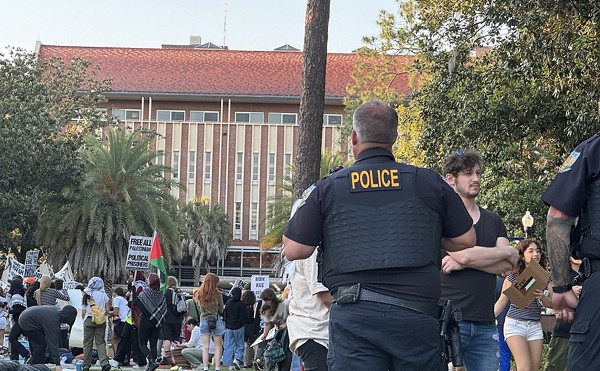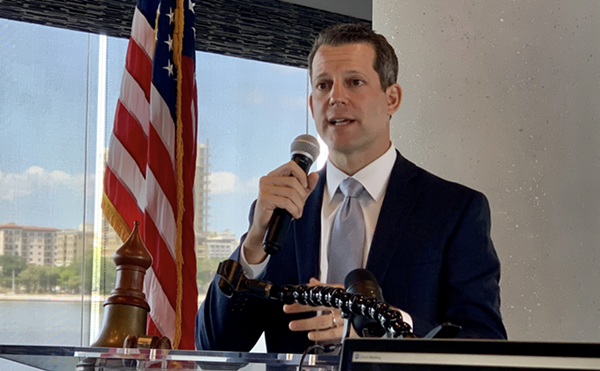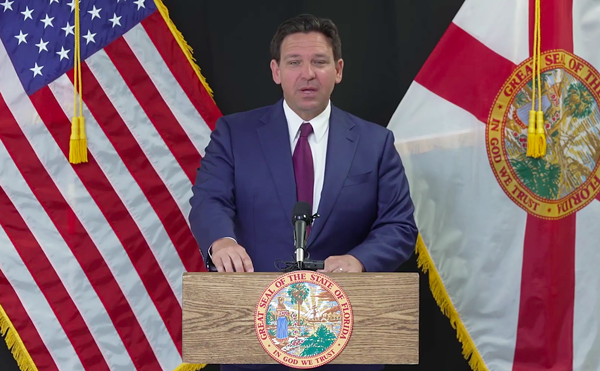As students returned to school on Tuesday morning, a press conference highlighted the importance of free and reduced lunches outside Miles Elementary in Tampa.
The gathering, organized by Florida Consumer Action Network, was prompted by Congress' potential failure to reauthorize the Child Nutrition Act, the source of funding for the program. According to FCAN, said programs assist two million children in the state of Florida alone.
“Most of us in the workforce need food during the day, it's hard to concentrate when your stomach is growling, but for kids in particular, they need that nutrition for growth and development,” said Olivia Babis, an organizer with FCAN. “We have standards for education, we're placing more and more responsibilities on our children, but we're not feeding them and giving them proper nutrition.”
This point was illustrated by the presentation of paper plates scrawled with messages such as “I don't want to be hungry” and “School kids in America shouldn't be as hungry as in third world countries.”
A specific program that falls under the Child Nutrition Act, the Community Eligibility Provision, grants free meals to all children at schools with high poverty rates. It emerged as one of the focal points of the conference, given the high poverty rate at some Hillsborough Schools. In that county, 61% of students qualified for free or reduced meals.
But what complicates this is that it negates the need for families to apply for free or reduced lunch program, and those applications are often considered as data points when agencies are considering awarding other types of aid — an issue Reverend Russell Meyer, the Executive Director of the Florida Council of Churches, places on bureaucratic red tape and conflicts between programs that benefit those in poverty.
“Right now large school districts in Florida depend a great deal on scholarships for those who meet certain financial needs," he said. "The only way they collect the data for those scholarships is through the applications that come with the free lunch and breakfast program."
But issuing the meals to all students muddies the water, Russell said
"When a school district qualifies to feed every child in every school, then they can't put out the application and ask people to fill it out. ... What we have right now in Hillsborough County is this bureaucratic standoff between feeding every child and getting scholarships for the most needy children.”
Former state representative Betty Reed was unable to attend her scheduled appearance due to issues at the office having to do with her forthcoming state Senate campaign, but provided a statement on the issue:
“It is so important for the food programs to continue and in some areas expand because sometimes that is all the food some children get that day."














